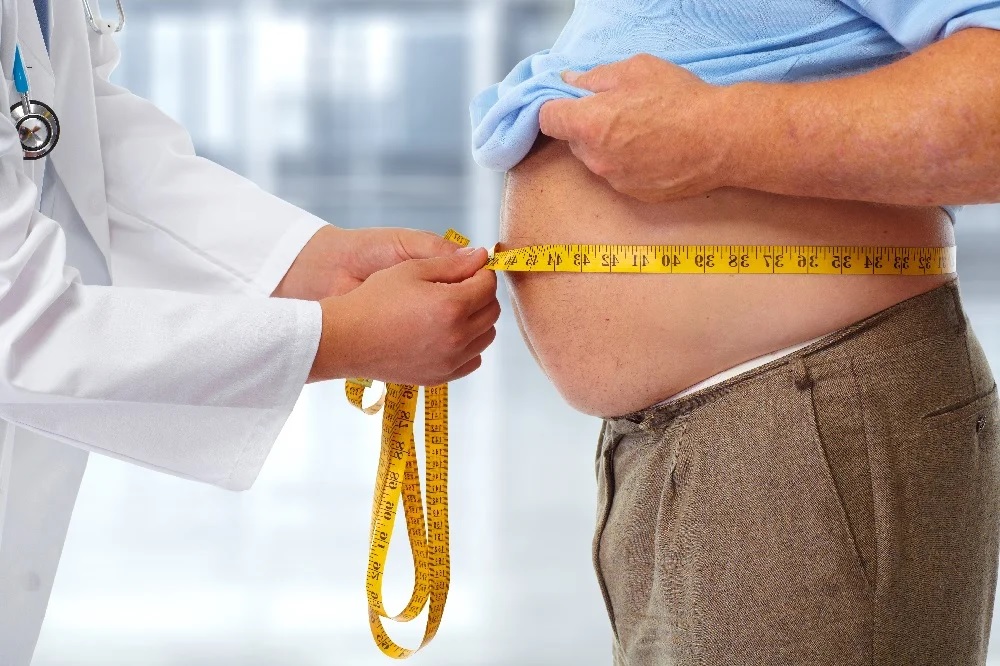Healthbeauty123.com – Obesity is a serious health problem that affects men and women alike. Besides causing visible physical changes, it can also lead to life-threatening conditions. If not treated, it can cause many other problems, such as decreased quality of life, psychological distress, and even cardiovascular issues. Obesity is the result of consuming more calories than you burn, and the excess energy is stored as fat. Listed below are some of the symptoms of obesity in adults.
Genetic Disorders Can Cause Early Obesity
Genetic disorders can cause early-onset obesity. Some of these genetic disorders affect genes that regulate appetite and energy expenditure. One such disorder is a pro-opiomelanocortin deficiency. People with this disorder experience extreme hunger during infancy. Another rare disorder is leptin receptor deficiency, which can lead to early-onset obesity. Hypogonadotropic hypogonadism is a rare form of obesity caused by a deficiency of the hormone leptin.
The condition increases your risk of developing various types of cancer. Obese women are at an increased risk of developing endometrial cancer, breast cancer during menopause, and colon and prostate cancer. Overweight men are at a higher risk of developing colon and rectal cancer. They are also twice as likely to develop high blood pressure. These are just a few of the many signs and symptoms of obesity in adults. If you’re concerned about any of these issues, you’ll want to schedule an appointment with your doctor.

Your doctor will determine the cause of your obesity. Your doctor will examine all the aspects of your situation and guide you in the right direction for treatment. You’ll need to change your diet to include foods high in proteins and plenty of fresh fruits. You may also need to incorporate daily physical activity into your regimen. Your physician may also prescribe a physical activity program. If you suffer from any of these symptoms, the right treatment will help you lose weight and improve your health.
Recommend Weight Loss Diet
Treatments for obesity include diet changes and increased physical activity. While diet and exercise alone can help you lose weight, the treatment for obesity may be more involved, including prescription medications and weight-loss surgery. The goal is to improve the quality of life and reduce the risk of various health problems, including diabetes and heart disease. If you’re unable to maintain your weight loss, your doctor may recommend a weight-loss diet or even bariatric surgery.
There are many factors that contribute to the development of obesity in adults. Emotional factors affect food choices and trigger overeating, and many people overeat in response to stress. Additionally, a change in gut bacteria is linked to obesity and makes it difficult to lose weight. Thankfully, the symptoms of obesity can be controlled by changing your diet, increasing physical activity, and making lifestyle changes. Obesity also increases your risk of heart disease, high blood pressure, and abnormal cholesterol.

Overweight is a serious illness that can lead to heart disease, type 2 diabetes, and even sleep disorders. While everyone needs some fat in their bodies, excessive amounts can lead to serious health complications. The more body fat you have, the greater your risk for diabetes and kidney disease. There are also other problems associated with obesity that you may not be aware of. For more information, visit the National Heart, Lung, and Blood Institute (NHLBI).
Symptoms of Obesity in Adults Varies in Severity
The BMI is a rough measurement of a person’s weight in relation to height. It is also less reliable for some individuals, such as athletes with high muscle mass. Another method of assessing weight is by measuring waist circumference. People with a large waist are more likely to develop obesity-related health problems. In addition, increased lipid levels are also a risk factor for diabetes. Symptoms of obesity in adults vary widely depending on the severity of the condition.

While it is possible to reduce excess body fat through diet and exercise, there are other factors that should be taken into consideration when assessing obesity. First, excess body fat is the most obvious sign of being overweight or obese. BMI over 30 indicates being obese, while a BMI of 25-30 is considered overweight. The average weight of people with obesity in Australia is 30 or more. Some people even suffer from a higher BMI than this and end up gaining weight after losing it.
Reference:






